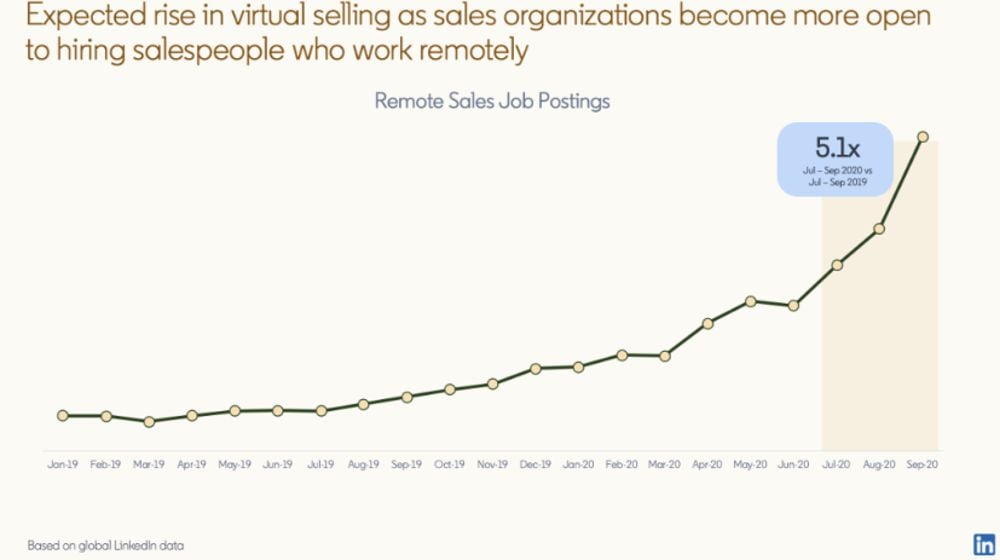After catching a glimpse of fully remote working during the COVID-19 pandemic, many people have decided that working from home, or from anywhere really, is better than going into the office every day.
And while there are a wide variety of remote jobs to choose from, there are some that hardly anyone wants. So, let’s find out which remote jobs are the least popular and, more importantly, why no one wants them.
What Adzuna Has to Say about Remote Jobs

Adzuna is a popular job search engine. The site has noted that some of its remote jobs are hardly ever searched or selected by its users.
James Neave, who works as a data scientist for Adzuna, explained there are essentially three factors that job searchers are looking for. He said, “They really prioritize things like flexibility and career growth and mental-health support.”
Let’s Talk about Flexibility

The first feature, flexibility, is one of the biggest pros of working from home. For young parents, those who love to travel, or people who don’t want to live in cities with an ample workforce, working remotely offers a lot of flexibility.
But while almost every remote role is technically more flexible than an in-person position, they don’t all offer the other two aspects people are looking for: Career growth and personal support.
Moving Up in a Chosen Field

The next aspect, career growth, is much more challenging to find in remote work as the jobs available are more commonly lower-level positions.
So, even though some positions, such as working freelance, project-based jobs, and data entry are technically flexible, job hunters aren’t fighting for these roles because there are no opportunities for promotion.
Looking for Mental Health Support

It’s also important to note that many people looking for jobs, especially the younger Gen Z population, want to work for a company that offers support and attends to their personal needs.
This next generation doesn’t want to spend their lives being completely chained to their desk, miserable and exhausted. They’re looking for understanding and acceptance from employers of their desire for work-life balance.
The Jobs Nobody Wants: Data Entry

Now, with those three aspects in mind, it will make more sense as to why these roles aren’t being filled by those looking for remote work.
The first job on the list is data entry. Although data entry may seem like an easy gig that can be done from anywhere, it’s extremely monotonous, and there is no community feeling or possibility for promotion.
Being an Online Sales Associate

For decades, working in sales has been considered quite a great job since those who are good at what they do can make significantly higher incomes through commissions. And since the pandemic, more and more of these sales positions are being offered as fully remote.
However, according to Adzura, not as many people are searching for online sales jobs as one might expect. The general consensus is that the salary isn’t reliable and, therefore, doesn’t make people feel secure and supported.
Reliable Work Is Hard to Find

Speaking of reliable work, it’s interesting to note that while there are certainly more freelance workers than ever before online, some agree that these jobs are simply too unreliable.
Not to mention that most freelance work is task-based and wildly underpaid compared to full-time positions. So, those looking for a steady income and support from their employers are absolutely skipping the many freelance sites with job postings.
Customer Service Jobs Are Not a Very Popular

Another previously popular position that is now being skipped by many looking for work is that of a remote customer service representative.
The unimpressive salary the job typically offers is certainly a part of why many people don’t want to work, even from home, in customer service. But it’s also the fact that there is no room for career growth in these positions, and the hours are often less than ideal.
Looking for a Job with Better Hours

In general, it seems that most people not only do not want to work the classic 9-5 schedule, but also want to ensure they’re not being asked to work overtime to meet a quota or work on the weekends.
It’s important to note that some say the younger generation is asking for too much at this point. Freedom, flexibility, fantastic work hours, mental health support, and career growth are almost impossible to find in one position.
“Times Are Changing”

Neave noted that workers no longer want to do the same tasks every day or work the standard workweek. And while “That has been what many millions of humans have probably done for thousands of years,” he said, “times are changing.”
What that means for the future of the workforce or professionalism, in general, is yet to be seen, but one thing is for sure: Even though people very much want to work from home, they won’t just take any job that allows them to do so.
Changing the Way Companies Present Positions

In order to ensure those looking for work actually apply to these less-than-ideal roles, Neave argues that companies may have to start changing how they present the positions online.
He said, “Maybe they need to take a step back and have a bit of a rethink about how they define these roles” and essentially offer at least some of what young professionals want, such as more flexible hours, community support, and the opportunity to move up in due course. That’s if they want applications.
